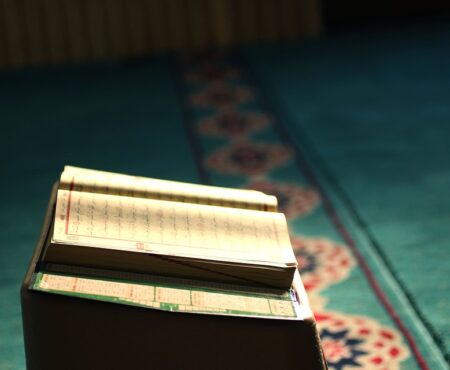Fasting in Ramadan and Health Benefits
Part 1: Foods.
The challenges for health during fasting
Although it is well known that fasting has numerous health benefits for the person, it is also important to be aware that taking a few simple steps can make the fasting month easier, and indeed contribute to an overall improvement in health. Certain habits however may leave the fasting person in an unhealthier state by the end of the fasting month.
Some people who fast for example end the fasting month having gained an inordinate amount of weight; others may simply be pushing their bodies even closer to exhaustion through not following the best eating practices during the month.
This article will highlight some of the unhelpful practices we should avoid during the fasting month, and will present a list of recommendations to maximise energy levels during the month. It will also mention some of the foods that will be useful in staying healthy during the fasts.
The foods we eat (including fluids) after breaking the fast and their impact
We already referred to the fact that for some people, the main meal we have after breaking the fast, iftar, turns into an excuse to overeat, resulting in the fasting month becoming detrimental to their overall well-being.
Fasting in Ramadan has huge spiritual benefits for the believer, and if done properly, it can also help to purify the body. If we adopt bad eating habits during Ramadan, we won’t purify our bodies and thus benefit as we could.
What we eat and drink between breaking the fast, iftar and the morning meal, known as suhoor, ought to help those fasting achieve the following;
- Maintain energy levels during the daytime fast, so normal duties can be carried out.
- Keep the body reasonably hydrated, so the fasting person is not impacted by headaches or dizziness.
- Stabilise blood sugar levels, so that there is no sudden drop in the afternoon, making the fasting person feel very weak.
In general, the quality and quantity of food consumed during Ramadan should not change drastically by the standards of a normal healthy diet. Food from all food groups should be included, rather than an excuse to overindulge in sugary, fatty or salty foods for iftar. Prophet Muhammad described the way to keep our stomachs healthy; he said that “no man fills a container worse than his stomach”, and “a few morsels that keep his back upright are sufficient for him.”
The fasting person should drink sufficient water during the iftar-suhoor period to achieve sufficient hydration for the daytime fast; however, the fluids should be consumed gradually over that period, so that the body’s electrolytes do not become diluted by an excessive amount of water. Along with water, the person might also want to break their fast with milk alongside dates, which enhances the health benefits of the dates. Soup has also been recommended, and is often consumed in many Muslim countries as a way of breaking the fast.
Both the evening and pre-dawn meal (suhoor) should include whole grains, fresh fruits and vegetables, protein and healthy fats. Portion sizes should not be too big, especially for the stomach that has just completed a fast of up to 16 hours, instead, one should opt for smaller, spaced out meals. Consuming large amounts of food for breaking the fast will lead to an overburdening of the stomach, excessive tiredness, and even a risk that the person oversleeps the following morning, missing suhoor. Although suhoor is not obligatory upon the fasting person, it is highly recommended, and comes with blessings, and without a sensible suhoor, the daytime fast becomes more onerous on the person. The Prophet of Islam himself recommended taking suhoor, as there is a blessing in it.
Foods that are recommended in the Quran and the Sunnah
In the narrations it is said that the Prophet of Islam used to break his fast with three fresh dates, if there were no fresh dates, he would eat three dry dates, and if there were no dates, he would break his fast with water.
Some of the foods that are mentioned in verses of the Quran are fruits such as grapes, dates, figs, olives and pomegranates, and they are considered heavenly fruits of God. As they contain great quantities of essential nutrients in a balanced proportion, making these fruits a great part of one’s staple diet will contribute to good health.
Pomegranates for example are mentioned three times in the Quran, dates more than twenty times, and the following verses from the Quran mention some of these foods which have special health benefits;
It is He who sends down water from the sky,
and brings forth with it every kind of growing thing.
Then, from it We bring forth vegetation
from which We produce the grain in clusters
and from the palm-tree, from its blossoms,
low-hanging clusters [of dates],
and gardens of grapes, olives and pomegranates,
similar and dissimilar.
(Quran, Chapter Al-An’am; 6:99)
The Quran also mentions other foods, such as honey, as foods that are especially beneficial, as well as milk and water which are also mentioned in the Quran. All these foods are known for their nutritional value and many health benefits.
The following verse is in reference to honey and its health properties:
There issues from its belly
A juice of diverse hues
In which there is cure for the people.
(Quran, Chapter Al-Nahl; 16:69)
Conclusion
Ramadan is the holiest and most important month in the Islamic calendar for Muslims. The challenge of fasting, makes it a joyous and special month. If the fasting person takes some simple steps towards balanced eating and drinking after the fast, it will be much easier to have a Ramadan in which they feel energetic and in good health. The consequences of overeating and an imbalanced diet are something that can be felt and leave people unable to benefit fully from the holy month.






Tous les commentaires (0)